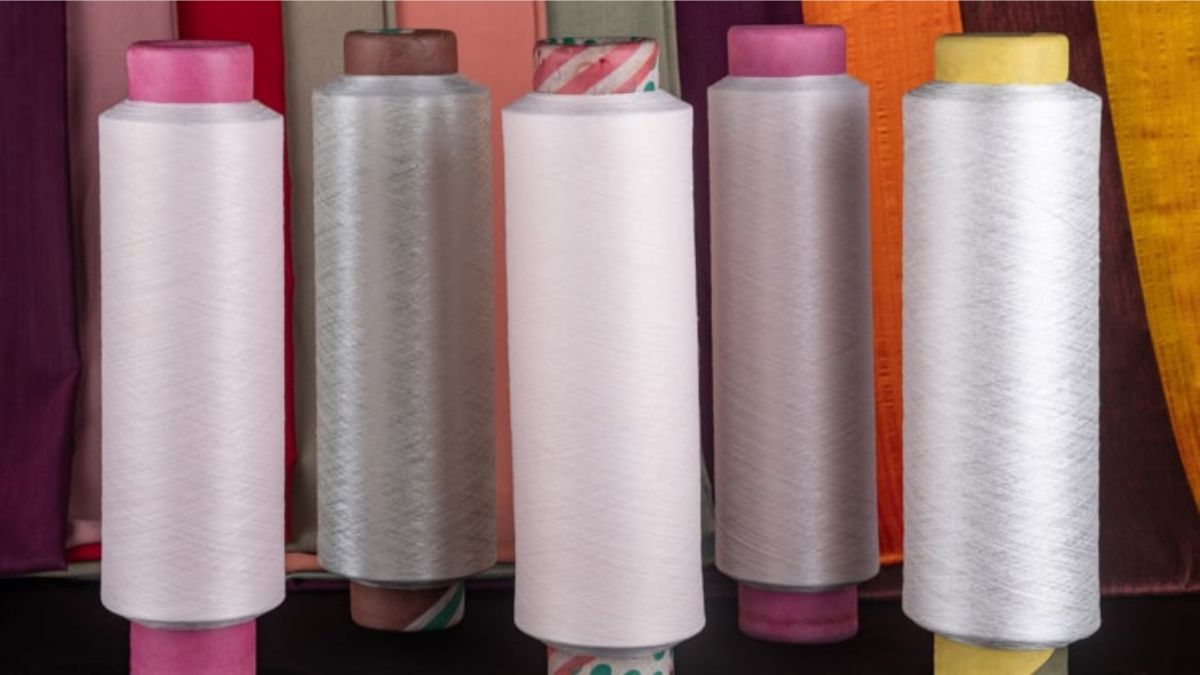Chinese PFY Exports to India Reach Record High of 552% Before BIS Certification
According to data from China Chemical Fiber Website (CCF), out of the 371.1 Kilotons (kt) of PFY exported by China in August 2023, 80.9kt were destined for India. This surge in exports to India marked a significant uptick compared to previous months and amounted to historic highs.

Advertisement
Surat : Polyester Filament Yarn (PFY) exports from China to India have reached an unprecedented high in August 2023, with a remarkable month-over-month (MOM) increase of 552%. This surge in PFY exports was driven by intensive delivery of orders ahead of the implementation of the Bureau of Indian Standards (BIS) certification requirement on yarn imports from October 5.
According to data from China Chemical Fiber Website (CCF), out of the 371.1 Kilotons (kt) of PFY exported by China in August 2023, 80.9kt were destined for India. This surge in exports to India marked a significant uptick compared to previous months and amounted to historic highs.
The impending BIS certification implementation on October 5 has led Indian importers to stock up on PFY from China, as the new regulations will restrict PFY imports from China under the new rule. From January to August 2023 alone, PFY exports to India reached 403kt, far surpassing the total export volume of 306kt for the entire year of 2022.
Ashish Gujarati, former president of the Southern Gujarat Chamber of Commerce and Industry (SGCCI), and a powerloom industry leader, stated, “India, especially Surat, is the top importer of PFY from China. Now, the BIS certification will ban imports from China starting from October 5. We are using AA-grade yarn for high-speed modern machines, which is not manufactured domestically in India. We have demanded an exemption for specialized yarn from BIS certification, but it has gone unheard.”
Although PFY exports to India surged in August, sea freight rates did not experience the expected increase. Data collected by CCFGroup indicated that freight rates from Ningbo to India’s Nhava Sheva port began to rise in early August, reaching around US$1400/40HQ by the end of August, before decreasing again in early September. The highest increment during this period was approximately $400.
Textile industry experts in India have noted that Chinese PFY yarn is of international quality and has not received approval under the new BIS regime. The PFY yarn from China meets AA-grade quality standards and is well-suited for the high-speed modern powerloom machines installed in Surat, India.
Approximately 90% of PFY imports from China are destined for Surat, a city with the largest capacity of installed high-speed modern machines. Surat boasts around 1.10 lakh high-speed modern looms out of a total of 6.60 lakh powerlooms in the region. The current demand for AA-grade PFY stands at approximately 13.40 lakh metric tons per annum.
The Surat textile industry is projected to add an additional 1.69 lakh high-speed modern machines over the next five years, increasing the total demand for AA-grade PFY to about 24.25 lakh metric tons per annum.
However, domestic production of AA-grade yarn stands at only 1.30 lakh metric tons per annum, far below the current and future demand. Industry associations in Surat, including weavers and knitters, have urged the Indian government to exempt certain specialized AA-quality yarn from the BIS certification scheme. They argue that the high-speed modern machines will have to shut down due to the non-availability of international-standard yarn.
“The impending implementation of BIS certification is raising concerns within India’s textile industry, particularly among businesses that rely on high-quality yarn for modern machinery” said Bharat Gandhi, chairman of Federation of Indian Art Silk Weaving Industry (FIASWI)
Advertisement

